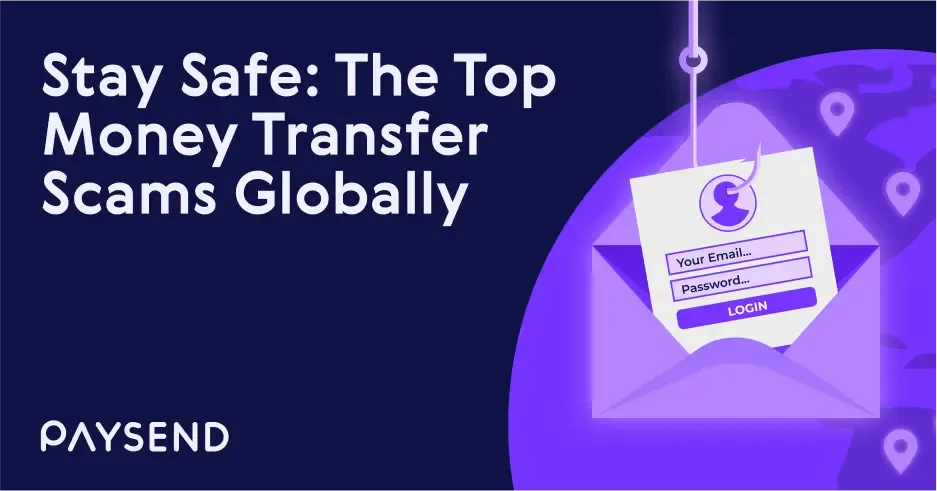What’s the best way to transfer money abroad?

The coronavirus pandemic has completely changed the way that you can send your money abroad, and you need to stay on top of what you can and can’t do when it comes to sending your money abroad.
The money transfer methods that you used in 2019 may not be the best way to send money abroad right now, as you don’t want to put yourself, your family, or others members of the public at risk.
Here are the main ways you can send money, along with some information about how they have changed since the coronavirus pandemic:
Using your bank
Sending money with the bank that you use for your day-to-day money management was a very popular method before the pandemic, but since lockdown restrictions forced people to stay at home, trips to the bank were made very difficult.
Because of this, many more people decided to find alternative methods, such as using an online money transfer company, and found that the fees were much lower and the exchange rates much better with these new methods. And as a bonus, they didn’t have to spend any time travelling or queueing up!
Using a high-street transfer company
You’ll find a number of money transfer outlets in off licences and post offices that will let you send money abroad for a cash pick-up or straight to a bank account, but similarly to high street banks, lockdown has shown people that there are better options out there that don’t require travelling from the comfort of home!
High-street transfer companies sometimes have really high fees and poor exchange rates depending on which pick-up method you choose, so be careful!
Using an online transfer company
Sending money online from a smartphone app or your laptop might just be the easiest method because you don’t need to leave home, and so there is no chance of contracting or spreading coronavirus on your way to sending money!
Sending money abroad online is usually low-cost, with flat fees and excellent exchange rates. Many people have switched to online transfers since lockdown, and have absolutely loved the experience and the price!
Using a foreign exchange broker
If you’re sending a large amount of money abroad, or you’re a business, then you may choose to use an FX broker. You should be careful though because the fees can be very high and you may not think that it’s worth paying lots of commission to send your money! Signing up with an FX broker usually takes a couple of days, but thanks to coronavirus it can take even longer.
You’ll be able to find lots more options for sending money much more cheaply online, and if you’re a business you should check out services like Paysend Business.
Taking the money yourself
Before lockdown restrictions came into force, many people would move their money abroad simply by taking it themselves when traveling to visit friends and family abroad. Clearly, this is very expensive to do and in some cases impossible thanks to coronavirus travel limitations.
In addition, taking physical cash and physically crossing borders can increase the risk of transmitting the virus to your loved ones, so should be avoided wherever possible.
Paysend is an online money transfer platform that helps you to send money quickly, cheaply and easily from a smartphone app or web browser.
With Paysend, you can transfer money either to a bank account or directly to a card, using just the recipient’s name and card number. Sending to a bank is done with zero transfer fees, and to a card costs just £1, €1.5 or $2 - our transfer fees are always low, flat and transparent. Paysend always uses excellent, competitive exchange rates to help you and your recipient get the most from your money.
When you send money with Paysend to your friends and family abroad, it usually arrives within a few minutes of being sent, unless your recipient’s bank is slower than us at processing the payments!
Download the Paysend app today from the App Store or Google Play to get started!
Neueste Beiträge

Sending money internationally has never been easier, but as digital payments become more popular, so do scams targeting unsuspecting senders. Fraudsters use various tactics to deceive people into transferring money, often pretending to be banks, employers, or even loved ones in distress.
To help you stay protected, we’ve outlined some of the most common and most recent money transfer scams happening around the world and how you can avoid them.

Sending money to Poland isn’t just about transactions - it’s about staying connected with loved ones, supporting family, and helping celebrate life’s special moments. Whether it’s funding daily expenses, contributing to education, or lending a hand during festive occasions, the process should be fast, secure and hassle-free. With Paysend’s partnership with Visa, transferring money to Poland has never been easier.